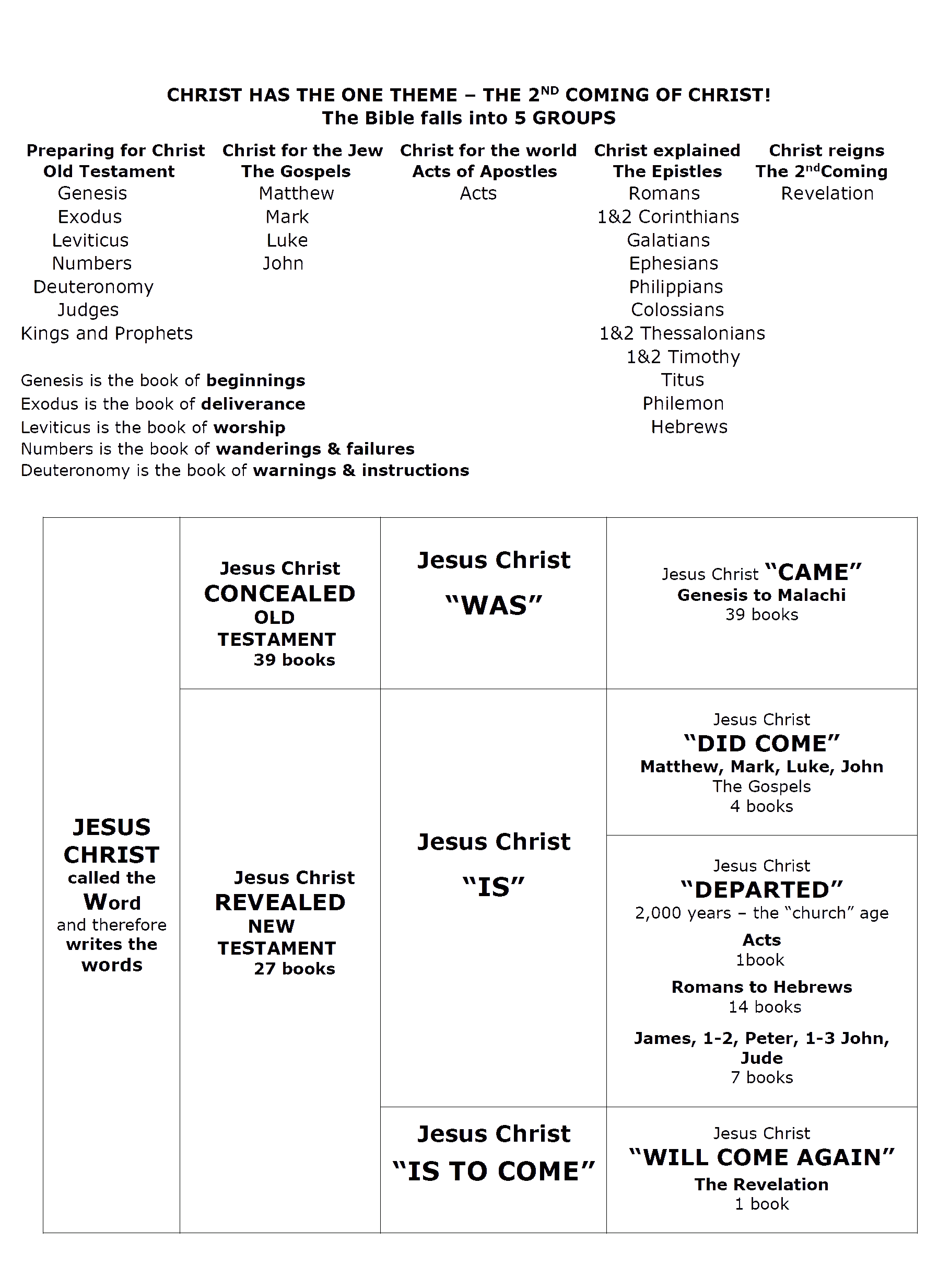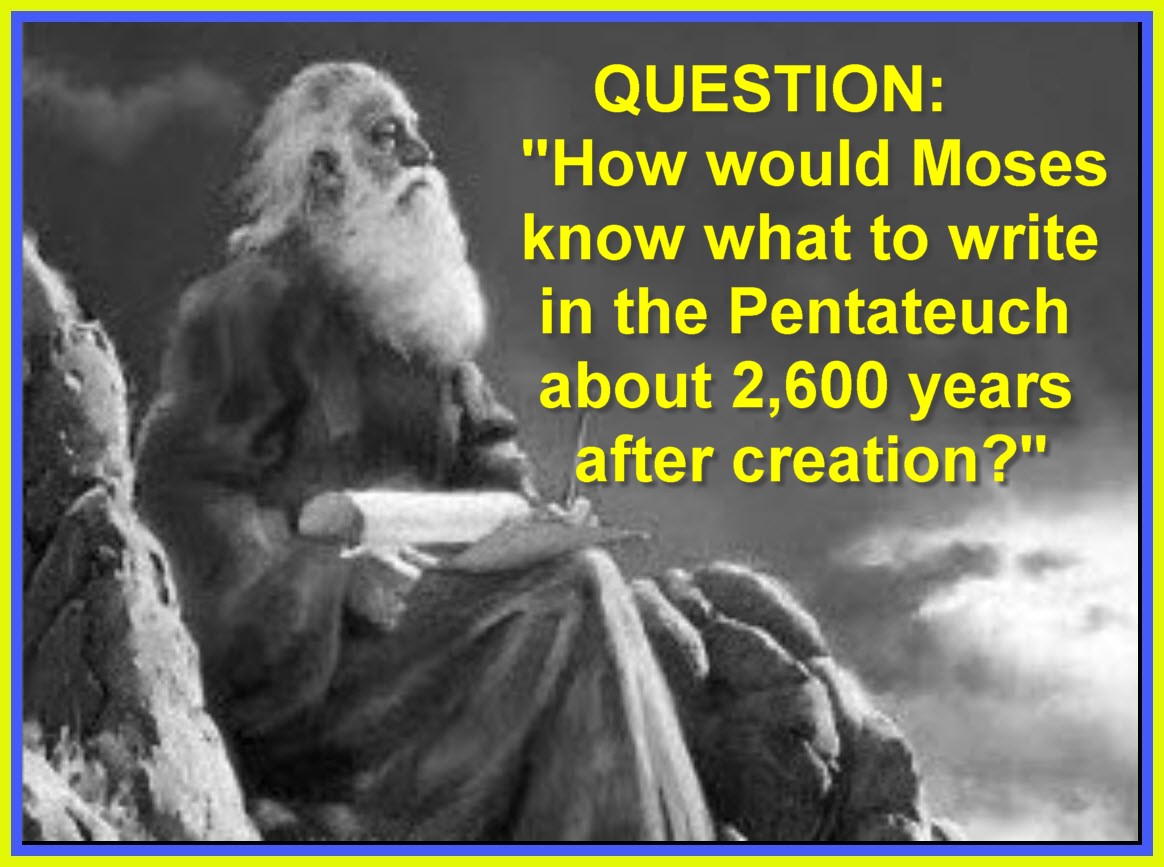

STUDY
THE BIBLE 5a (STB-5a)
“THE TWO ESSENTIAL KEYS
FOR
PROPER BIBLE STUDY”
1.
Distinguish between the 3
groups written to - JEW, the GENTILE, and the CHURCH
2.
Know the DISPENSATIONS –
each beginning with opportunity but ending in failure.
Failure
with the above two,
may see you in hell.
First,
fervently pray to God
“Dear God, I must have the truth, all of the truth and nothing but the
truth,
at any cost. I give up all reputation, friends, careers, Greek, Hebrew,
the
scholars and money, but I must have your knowledge, understanding and
revelation of your word, the English King James Bible. Without your
help - I am
lost. Amen”
The
following points do not
have full explanations, and are simply stated to give an overall
picture and
general direction, for New Testament Bible study.
Next,
crippling, spiritual
and Nicolaitane bondage (Rev 2:6) comes from not rightly dividing the
word. All
the cults, Rome, the apostate and the backslidden religious, get their
false
doctrines from Matthew, Mark, Luke, John, 1st, 2nd, 3rd John, Acts,
Hebrews,
James, 1,2 Peter, Jude, Revelation, and of course the Old Testament.
Christians
get their
doctrine from Paul found in Romans, 1&2 Corinthians, Galatians,
Ephesians,
Philippians, Colossians, 1&2 Thessalonians, 1&2 Timothy, Titus
and
Philemon. All of the Bible is true, correct historical and spiritual,
but may
not apply as Christian doctrine. All else, including the Old Testament,
are for
different dispensations, past or future.
Next,
when Paul writes the
book of Hebrews, he is not writing to Christians, but to the Jew, who
is
attracted to Jesus Christ as he was on earth as the Messiah. With
Christ having
died, they are undecided if they should. have him as Saviour. Paul’s
theme is
“Have Jesus the Saviour and not just Jesus the Messiah
Next,
Paul asserts “Be ye
followers of me, even as I also am of Christ.” (1Cor 11:1) and “Those
things,
which ye have both learned, and received, and heard, and seen in me,
do…” (Phil
4:9). “…my doctrine ….” (2Tim 3:10) “…my gospel” (Rom 2:16). Paul is
the final
and chief of all apostles. Peter HAD the gospel for the circumcised and
Paul
for the uncircumcised. However all must have the gospel of Paul now.
Next,
don’t just use the
King James Bible, but believe that it is God’s final written authority
to man -
perfect, preserved, inspired, infallible and inerrant. This will be a
step of
faith for every reader and those that would study the Bible.
Next,
discard completely any
reference to the “originals”, “the Greek” and “the Hebrew” by any
commentator
who promotes these. See next point.
Next,
be aware that all
error comes from 1. Adding words 2. Subtracting words 3. Changing and
substituting words 4. Taking words and verses out of context 5.
Allowing
unclear words and passages to explain clear words and passages 6.
Bowing to
commentators and scholarship 7. Going to the “Greek” or “Hebrew” to
change the
meanings of the King James Bible words
Next,
know the difference
between the Jews, the church and the Gentile (1Cor 10:32) and which
book is
written to which group.
Next,
know the difference
between 1. The kingdom of heaven vs kingdom of God (See Study the Bible
number
7 on Matthew) 2. The new testament vs the new covenant 3. The day of
Christ vs
the day of the Lord 4. The Son of man vs the Son of God 5. The rapture
vs the
2nd advent 6. The gospel vs the gospels.
Next,
know that in Acts
there are two ways to get saved, Peter’s and Paul’s, but Peter’s has
been made
obsolete (out of date) by Paul who is the first to preach “believe +
nothing
else” in Acts 13:39.
Next,
know that the book of
James seems to “contradict” Paul, as it seems to have a mixture of
works and
faith. He writes to the 12 tribes not to the churches as Paul does.
James is
written six years before Paul puts pen to paper with his first book of
Galatians, and so he does not come across with the clarity of the
Pauline
doctrine of the kingdom of God. Paul says “Believe, with no works
needed, and
you’ll be saved”, as the jailer says to Paul “…Sirs, what must I do to
be saved?
And they said, believe on the Lord Jesus Christ, and thou shalt be
saved,…”
(Acts 16:30-31). The books of James, Acts, Matthew & Hebrews are
traps for
the unlearned.
Next,
know that Matthew is
written to Jews with mostly kingdom of heaven doctrine, although the
kingdom of
God is mentioned. When they died, the Jews, having rejected Christ and
his
kingdom of heaven on earth, went to Abraham’s bosom, and not heaven.
Today,
when a Christian dies, he goes straight to heaven.
Next,
Mark and Luke write
the gospels of Mark and Luke in AD 58 and AD 60. This is 20 years after
Matthew
writes the gospel of Matthew. As Matthew addresses the Jews, he
stresses the
kingdom of heaven and not the kingdom of God. Matthew’s account shows
that
Jesus did not die till Matthew 27, and so it would not have made any
sense for
Jesus to preach about believing on his shed blood to the Jews.
No,
at that time, the Jewish
dispensation of animal sacrifices for the remission (not redemption) of
sins
was still in force. They never had eternal security like we do today.
They
needed daily sacrifices to just cover their sins, while all the time,
believing
in Jesus to fulfil the law on their behalf. We have the final sacrifice
of
Jesus’ blood to wash away our sins (Rev 1:5). For both Mark and Luke,
having
spent many years with Paul, whose message was the kingdom of God, it
would not
make much sense for either Mark or Luke to spend much time on the
kingdom of
heaven doctrine, which had been covered more than adequately in Matthew.
Next,
there are the four
gospels of Matthew, Mark, Luke and John for a particular reason. They
seem to
have little bits that contradict each other. Put it this way, if four
people
see a car accident, they will have four different accounts of what
happened.
The same accident but four seemingly different stories, but all are
true.
So
it is with the four
gospels being about the life of one man, Jesus Christ. The four
accounts are
100% correct but each seem to have different details. But as lawyers
and judges
know, the apparent inconsistences, when reconciled, prove the truth. It
is
these ‘irregularities’ of seeming contradictory evidence, when pieced
together,
prove the truth.
Next,
although John writes
about Christ on earth as a man, the Son of man, he tells more of Jesus
Christ
as Son of God. Without getting too simplified, Matthew, Mark and Luke
tell of
the history of Christ, while John gives more of the mystery of Christ.
Unbelievers and false Christians hate John’s gospel the most out of the
four,
as it is written to counteract all the heresies surrounding Jesus
Christ eg
Jesus was just a god, not God; he was half-man and half-God and so on.
Next,
the books of Romans
and Galatians are a pair, with Romans having the pure doctrine of
salvation to
be had before the cross, that is, saved by grace without works.
Galatians, is
the doctrine to be had after salvation, and this security of salvation
is also
to be had by grace without works.
Next,
the books of Ephesians
and Colossians are a pair, with Ephesians about the ‘body’ of the
church.
Colossians about the ‘head’ of the church being Jesus Christ.
Next,
be wary of getting
Christian doctrine out of Peter 1&2, James or John and John 1,2,3
although
they were trusted apostles.
Next,
although the book of
the Acts of the Apostles is in the New Testament, and is written after
the shed
blood of the cross, it is in TWO HALVES. The first half had Peter
preaching to
the men of Israel, and following events, Paul takes over in the 2nd
half, when
he preaches the pure gospel starting with his 1st trip.

The
Bible is, by far, the
most published and widely distributed of all books ever written.
The
Bible was the first book
to be printed with Gutenberg’s printing press.
The
Bible is the most
provoking and baffling of all books when it comes to study.
Most
non-believers claim to
have read the Bible – which they haven’t.
Most
non-believers claim to
know what it says – which they don’t.
Even
sincere believers soon
‘give up’ from serious effort to master the contents of the Bible.
No
verse or part of scripture
is separate from its place in the whole of the Bible.
All
verses are connected to
each other. One verse will lead to another, then another, then another
& so
on.
Each
book, chapter, verse
and word form a necessary part of the Bible, and has its appointed
place.
The
Bible is one book not
separate books.
The
Bible has one author.
There about 44 writers.
The
Bible tells of one God.
God
is consistent about
himself and the revealing of himself.
There
are no contradictions
about God in the Bible.
The
Bible is one continuous
story.
The
Bible has the most
unlikely prophecies about the future.
With
the passing of
centuries, all prophecies are fulfilled concerning their time &
recorded
descriptions.
The
mighty empires of Egypt,
Assyria, Babylon, Persia and Greece all rose and fell as foretold in
the Bible.
The
Bible is a progressive
unfolding of truth where nothing is told all at once, or once and for
all.
It’s
like a tree – first the
seed, then the shoot, then the young sapling, then the full grown tree.
The
Bible has one theme –
the person and work, past and future, of Jesus Christ.
The
Bible has 44 writers, on
3 continents, over 4,000 years, giving a perfect harmony of unfolding
doctrine.
The
collusion (the getting
together) between writers, centuries apart, would have been impossible.
Each
book is complete in
itself, with its own theme and analysis eg Genesis = the book of
beginnings
All
heresies are Bible
truths meant for another dispensation and time.
The
Bible must be
interpreted literally.
The
Bible is 100% historical
and factual.
The
King James Bible, also
known as The Authorized Bible, is infallible, inerrant, inspired and
preserved.
Where
symbols are used,
there are to be understood within their context and meaning.
There
are no myths or
legends in the Bible.
Miracles
defy human
explanation, and are simply as facts.
Miracles
cannot be explained
by science. Miracles occur outside of the laws of science.
The
attempt to explain
creation with science is not possible.
Science
can only deal with
the physical and created world, after it has been created.
All
prophecy is literal.
Prophecy foretells, it doesn’t predict.
The
Bible is not a “lucky
dip”, where isolated verses are taken and interpreted out of their
context.
The
Bible is the oldest book in the world.
Moses
wrote the first 5
books about 3,500 years ago.
There
are older written
records such as “The book of the Generations of Adam” (Gen 5:1)
No
other written records
exist of the continuous genealogy from Adam to Christ spanning 4,000
years.
****
****
www.
AustralianBibleMinistries
.com

BULLSEYE!
ACCURATE BIBLE KNOWLEDGE!
Question: “How
would Moses know what to write in the Pentateuch
about 2,600 years after
creation?”
Australian Bible Ministries, PO
Box 5058 Mt. Gravatt East 4122 Qld, Australia
www.AustralianBibleMinistries.com